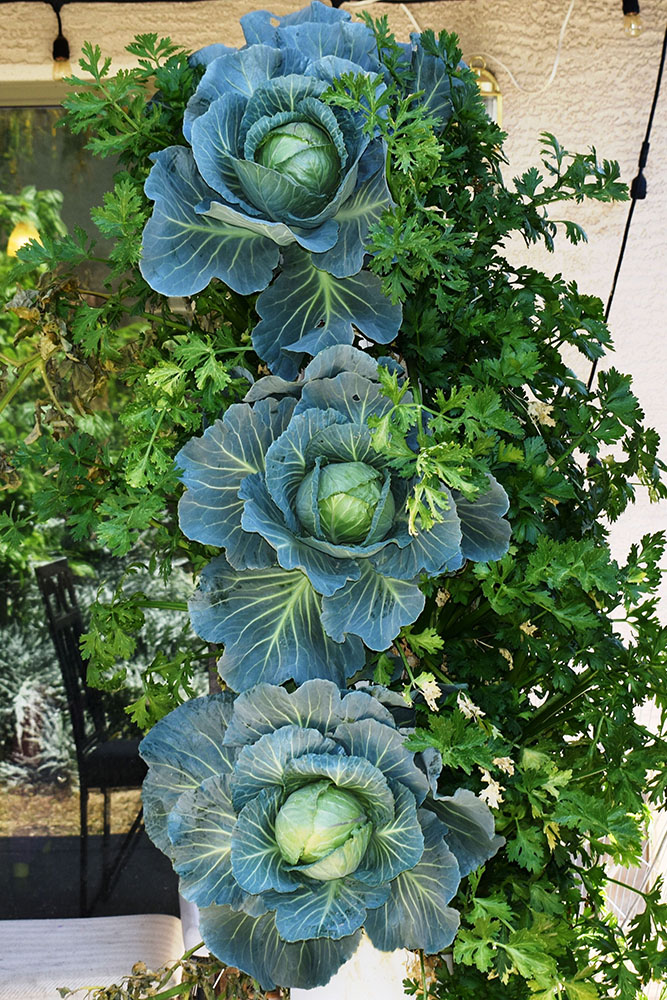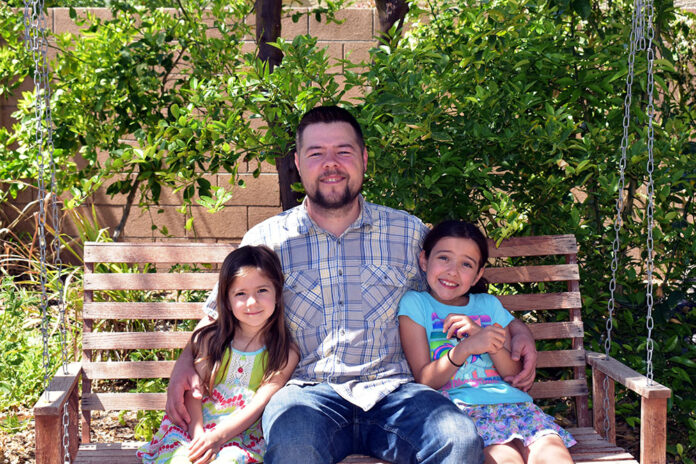By Trudy Fuller

Joe Whittle and his young family have lived in Maricopa four years, bringing with him 12 years of gardening and professional landscaping experience.
He also has completed a permaculture course taught by Geoff Lawton, based on the original permaculture book written by Australian ecologist Bill Mollison. By following these principles, Whittle has created a profusion of edible and medicinal plants along with those plants that are beneficial for wildlife such as hummingbirds, bees and butterflies.
Working with rather than against nature is a permaculture philosophy. Here in the low desert, the U.S. Climate Data lists the average rainfall for Maricopa as 7.87 inches, which poses a challenge of making the most of a very modest rainfall.
Whittle has devised a passive rain water harvesting system to supplement his garden’s irrigation system, utilizing rain gutters that channel precipitation onto sunken gravel covered walkways below the soil level of the garden beds. In this way, the moisture seeps into the various root zones.
Companion plantings allow for taller plants to shade the understory plants, allowing the soil to stay moist longer. For example, a mulberry tree shades an artichoke, a sweet acacia provides shade for several types of citrus, and a guava plant receives shade from 10-foot sugar cane stalks.
Permaculture strives to keep the soil covered with moisture-providing plants, including weeds. There is a basic strategy for weeds in this garden. Eventual growth of vegetable crops will shade out weeds. Before they go to seed, weeds are added to the compost pile, along with seasonal tree leaf drop, providing minerals to the compost.
 Moisture-preserving vegetable ground covers, including radishes, turnips and spicy mustard, improve the soil and eventually replace weed growth. Other ground cover found in this garden include sweet alyssum, deep-rooted dichondra clover, marshmallow herb and sweet lavender. Moisture is further saved through different mulches and finely ground wood chips. The moist soil created from these plantings encourages the earth worm population.
Moisture-preserving vegetable ground covers, including radishes, turnips and spicy mustard, improve the soil and eventually replace weed growth. Other ground cover found in this garden include sweet alyssum, deep-rooted dichondra clover, marshmallow herb and sweet lavender. Moisture is further saved through different mulches and finely ground wood chips. The moist soil created from these plantings encourages the earth worm population.
A shade-providing mulberry tree is thriving in this garden due to the extra moisture created from the permaculture strategy. Some shade is needed here in the desert, and this tree’s roots, among others in the garden, open up the soil to create air channels needed to promote plant growth.
To learn more about Joe Whittle’s garden, visit Whittle Bitty Farms on Facebook.
The next landscape and garden course will be offered at the Maricopa Agricultural Center beginning in late August. To get on the mailing list, write to macmastergardener.com.
Trudy Fuller is a Tortosa resident and a Pinal County master gardener.
This column appears in the June issue of InMaricopa.


















